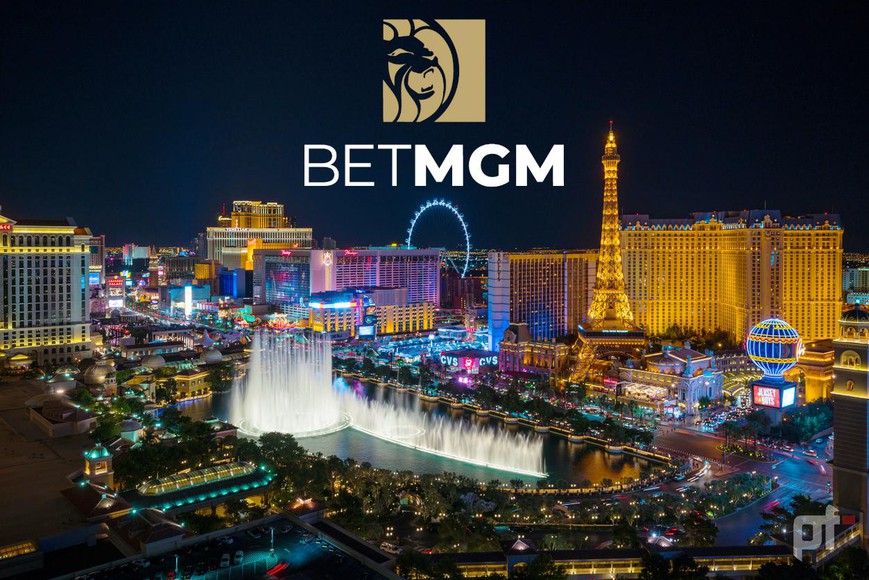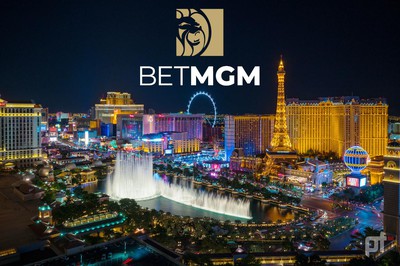

We have a few more small projects related to sports betting, and then the timeline would allow the poker [product] to be the next project.
MGM Resorts Interactive still plans to launch online poker in Nevada but is “roughly a year” away from doing so.
That’s according to Chandler Pohl, vice president and legal counsel for MGM Resorts International. His comments during a lengthy, and sometimes bewildering, Nevada Gaming Control Board (NGCB) meeting on Wednesday means BetMGM Poker NV is still not close to prime time. (MGM Resorts International owns half of BetMGM, Entain owns the other half).
Nevertheless, Pohl urged the panel to recommend that the Nevada Gaming Commission (NGC) grant the company what would be its 14th extension of an interactive gaming license for online poker. The NGC is scheduled to meet in two weeks, on April 18.
“We’re in the process of completing a field trial for our sports betting software,” Pohl told the NGCB, which coincidentally had just heard a similar appeal for a 14th extension from Z4Poker. “We have a few more small projects related to sports betting, and then the timeline would allow the poker [product] to be the next project.”
The NGCB ultimately agreed to recommend another extension. Although the extensions are officially for six months, the NGC has been granting year-long extensions up to this point.
I don’t mind recommending another waiver to the Commission … but I’m going to leave a very clear record without conditioning the waiver.
Pohl was joined at the podium by Sean McGuinness, a gaming attorney with Butler Snow LLP.
The meeting bordered on the bizarre. Both McGuinness and Pohl told the panel that a lack of shared liquidity was the primary reason why MGM needed another waiver, with McGuinness laying part of the blame on federal online poker legislation that was under consideration back in November 2012 — when the license was first issued. The legislation never came to pass.
“That was part of what was at play while all of these license were originally coming forward in Nevada,” McGuinness said. “It was expected that something else would happen.”
But while the discussion did touch on the Multi-State Internet Gaming Agreement (MSIGA), a multi-state gaming compact that supports online poker, there was no mention of the fact that BetMGM is already operational in Michigan and New Jersey — two MSIGA states — yet it has not yet combined player pools from the two states.
Delays Continue to Frustrate Regulators
Still, the fact that MGM, like Z4Poker before it, was asking for yet another extension was not lost on the NGCB.
“At some point it’s a public policy question of whether or not Nevada and gaming needs to move forward,” NGCB Chairman Kirk Hendrick said before the panel voted unanimously to recommend the 14th extension to the NGC.
“The Commission wants to have licenses and business in place and tax revenue and jobs and everything that goes along with an approval and an activation — as opposed to an approval and just waiting. I don’t mind recommending another waiver to the Commission … but I’m going to leave a very clear record without conditioning the waiver.”
McGuinness conceded that MGM wasn’t necessarily waiting for a certain number of players to be accessible. He said the company was keeping an eye on efforts to get Pennsylvania to join MSIGA (#GrowPApoker) and to launch online poker in Maryland.
Nevada regulators would conduct a “cursory update” for now, but when BetMGM Poker NV is ready to launch and the license is activated, any additional investigative work into personnel attached to the license “will be a little bit more involved,” Hendrick said.
Pohl confirmed that it was still MGM’s goal to launch online poker in Nevada.
Until BetMGM (or Z4Poker) launches in the Silver State, players in Nevada are left with just one option for online poker — WSOP NV. While the operator is connected to the New Jersey player pool, the software for the platform is a decade old. There have also been no efforts to expand the network into Michigan — the software is a roadblock to such an expansion.

